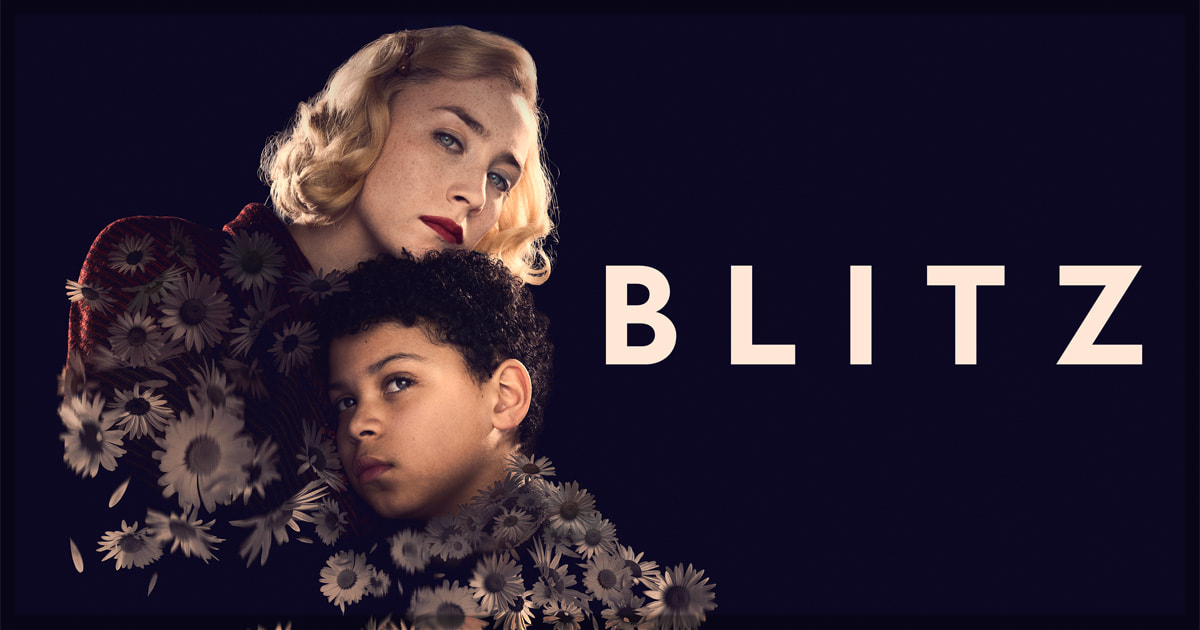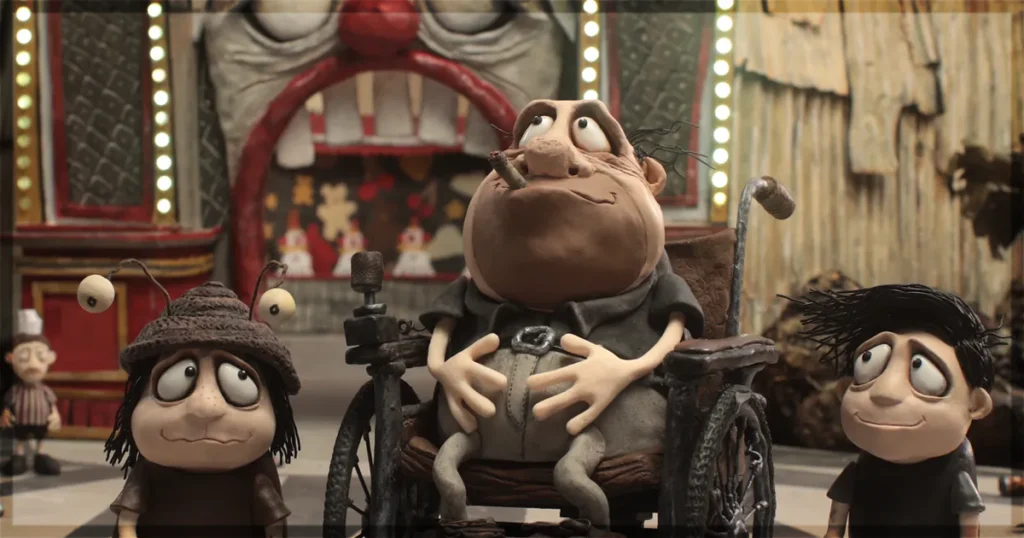Steven McQueen’s latest film, Blitz, marks the director’s return to fiction, after focusing on documentary filmmaking in 2023. Naturally, this comes with a lot of excitement for fans of the director as well as for fans of the historical drama genre. With its period setting and focus on the Second World War, this movie joins the myriads of other films that have been made on the Second World War, but can it stand out thanks to its unique point of view and analyses of themes that still ring true to British society today?
As the intertitles signpost from the very beginning, Blitz takes place in London in September 1940. From the opening scene, it is immediately clear that the film is set during the titular Blitz, a German bombing campaign with raids in London and across the United Kingdom during the first half of the Second World War. On this historical backdrop, the movie follows a family, made up of Rita (Saoirse Ronan), her son George (Elliott Hefferman), and her father Gerald (Paul Weller). In order to keep her son safe, Rita decides to send him away to the countryside, as many other families have done, but George has other plans and is determined to return to London, and to his home, at any cost.
The acting is without a doubt one of the most impressive elements of the entire film. Saoirse Ronan gives an incredible performance as Rita that hooks the viewers in from the very first time we see her on screen, proving that she truly is one of the best actors of the new generation. She is joined but an equally wonderful Harris Dickinson who, despite the limited screentime for his character Jack, proves his range as an actor once again. But it is Elliott Hefferman who shines the brightest amongst all the stars that surround him. Blitz is a stunning debut for a brilliant actor who we will want to keep an eye out for the tour.
London is so important in Blitz that it feels more than just the setting of the film, but almost a character in its own right. It is a different London than the one we see today, but instead the movie takes us back to the 1940s, to a version of the city many might have never seen before. For those in the audience who are familiar with the British capital, all of this will be even more impactful as the viewers can track George’s journey across some of London’s most famous landmarks. As he gets off a bus in Piccadilly Circus to find his way to London Bridge, we can immediately map how his travels are taking him closer and closer to his home in East London. Most importantly, it all makes sense: McQueen does not feel the need to come up with a fantasy version of the city for his protagonist to see as many famous monuments as possible, which often happens in films that use London as a setting, but instead uses the real geography of the place to his advantage.
Visually, Blitz also portrays the horror of the war through the eyes of a child who wants nothing more than being reunited with his mother. With British war films often falling into the trap of romanticizing and glorifying the part that the United Kingdom played in the Second World War, as well as the conflict itself, McQueen remains critical. The images of the war are beautifully shot, but terrifying to look at as the flames and destruction of the titular Blitz take over London. It also shines a light in the lack of government support towards his own citizens who struggle to find shelter from the bombs, risking their lives everyday.
The structure of the film is fascinating too. As he moves through London, George goes on a personal journey of growth as well of a physical one. While meeting various people and facing many threats, he is forced to grow up. In this sense a lot of Blitz feels very Dickensian inspired in the narrative. Not only is the journey through London and the focus on a child as the protagonist of the story typical of the bildungsroman genre, but the perils George goes through are similar to those the audience may have read in David Copperfield or Oliver Twist. Meeting a band of thieves who uses George for their own benefit, a nice man who has his best interest at heart, and a close encounter with the police looking for him are all examples of the latter.
The film also brings in the question of racism. In many ways, Blitz paints the picture of the 1940s as a whole rather than just the conflict. While the ear is admittedly the main focus of the film, McQueen also shows us other issues that seem systemic and inherent to 20th century Britain overall, regardless of the Second World War. Naturally, racism is one of them: while not overtly examined, racist-based discrimination against George is a common thread that keeps subtly coming back in the movie over and over. The film also analyses the issue of class divide that is still very much present in the country today, something that the war only made more evident.
Overall, Blitz approaches the genre of war movies in an entirely unique way by portraying the conflict from the perspective of a child. This proves to be a successful twist in an otherwise overly saturated genre that can often feel repetitive. While the fate of the world is at stake, what matters the most for both the characters in the film and the audience is seeing George reunited with his mother. In the grand scheme of things, whether or not George comes back home does not really change the outcome of the war, and yet, the movie makes it feel like it is the single most important thing for the whole duration of the film.
Blitz will play in limited theaters on November 1, 2024. It recently opened the London Film Festival.
Learn more about the film at the Apple TV+ website.


